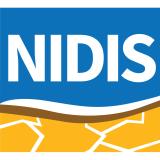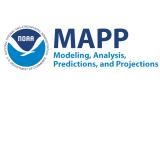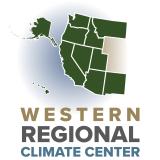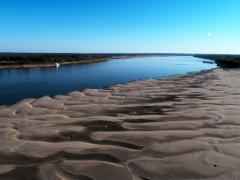NIDIS Awards $4.9 Million to Advance Drought Monitoring and Prediction in the West
Today, the NOAA Climate Program Office’s National Integrated Drought Information System (NIDIS) and Modeling, Analysis, Predictions and Projections (MAPP) program jointly announced $4.9 million in funding for NOAA labs and research partners to improve drought monitoring and prediction in the American West.
This research combines $3.1 million in funding from NIDIS and $1.8 million from the Inflation Reduction Act to improve decision-makers’ capacity to protect life, property, and ecosystems in the region from drought.
“Thanks to President Biden’s Investing in America agenda and the historic Inflation Reduction Act, this investment will support NOAA and its partners in better preparing Western communities for droughts in the coming years and decades,” said U.S. Secretary of Commerce Gina Raimondo. “By expanding and upgrading our drought monitoring and prediction capabilities, the Biden-Harris Administration is making communities across the American West more resilient to the effects of climate change.”
Drought is a common feature of the U.S. West, driven by the region’s unique geography, location, and climate. And it can exact a high toll.
In 2022, a single drought event in the American West cost $23.3 billion. Federal and state water agencies, tribal governments, water utilities, electric supply providers, reservoir operators, wildfire managers, and other stakeholders frequently pose questions such as: “What is driving the extreme and unprecedented drought conditions in the West?” and “Will the drought end, or is it evidence of a long-term change?” Answers to those questions generated by this foundational and applied science research will help communities plan and prepare for droughts which are amplified by climate warming.
“The future of the West depends on meeting the crisis of water availability with ingenuity and resolve,” said Sarah Kapnick, Ph.D., NOAA chief scientist. “I’m excited to see the results of these new investments in science that will prepare managers, stakeholders, and communities to anticipate, react to, and manage the increasing challenges posed by the water systems critical to their lives and economies.”
NIDIS and MAPP will support seven innovative, impactful projects that will improve the nation’s resilience at a critical time in the fight against the drought crisis. The projects are funded for three years and will cover drought issues across the southwestern U.S.
The seven new projects include:
- Investigating local/remote moisture anomalies as monitors/predictors of Southwest U.S. droughts
- Towards predicting drought and subsequent water resource challenges at landscape-resolving scales across the western U.S.
- Understanding and resolving a global discrepancy in near surface water vapor trends between models and observations
- Advancing Forecast-Informed Reservoir Operation and planning for the West Gulf through integration of climate forecasts and reservoir water balance predictions
- Understanding heat wave–snow drought relationships across the western United States
- Advancing understanding of plant-drought interactions for landscape to regional scale drought prediction
- Improving hydroclimate forecasts by multi-model combination approaches for enhanced reservoir operations on the Colorado River
For more information, view the full list of funded projects, or visit the MAPP-NIDIS Drought Research Competition web page to learn more about current and future MAPP-NIDIS collaborations and competitions.





















